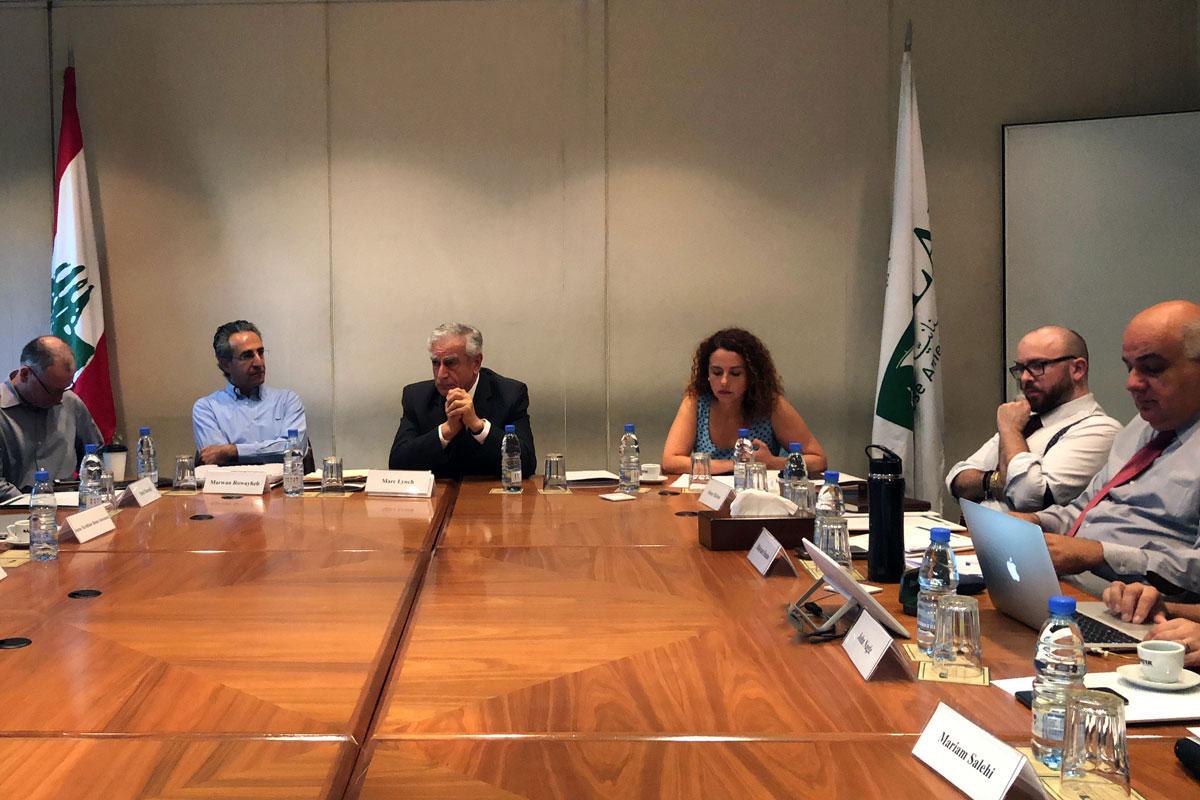ISJCR organizes workshop on transnational movements and inclusionary states

The Institute for Social Justice and Conflict resolution organized a one-day workshop as part of the Inclusive Governance Project, funded by the Carnegie Corporation of New York.
The workshop gathered academics and policy experts from the Middle East, Europe and North America to discuss a host of challenges facing post-uprisings Arab states and societies, under the theme Challenges of Transnational Movements and Inclusionary States. It was held in collaboration with George Washington University’s Project on Middle East Political Science (POMEPS).
Associate Professor of Political Science Bassel Salloukh said the workshop focused especially on “how to achieve true reconciliation, prosperity, and justice, how to ameliorate and reverse the present wave of sectarianization, and how local and transnational non-state actors are changing the domestic and geopolitical landscape in the Arab world.”
The participants discussed the role of political and institutional engineering in promoting reconciliation and inclusion in postwar deeply divided places, the role of socio-economic policies in promoting the participation of marginalized gender, ethnic, sectarian, or tribal groups; and the impacts of armed non-state actors on post-uprising Arab states.
LAU President Joseph G. Jabbra described the workshop as a timely event in light of the major challenges the Arab region is currently facing.
“The Arab states are in disarray and dare I say that the Arab state in the full sense of the term no longer exists,” he said.
“It’s been hijacked by either ideological, religious, military or clusters of corrupt people who are in charge of the state, or the state has been controlled by outside forces and by outside actors, or in the final analysis a combination of the two.”
In view of such a volatile climate, Dr. Jabbra continued, the ultimate goal for political scientists is to “build a program that can help local political scientists to have what it takes and what is needed in order to address the monumental challenges that the Arab states are facing in the present time.”
Echoing Dr. Jabbra’s stance, ISJCR Director Tamirace Fakhoury said the meeting presented a “a much-awaited milestone in the two-year trajectory of the project on inclusive governance,” which is led by Dr. Salloukh.
She said that the collaboration with POMEPS “promises to change the scholarly and policy conversation on ways to promote a reconciliation and inclusion in the Middle East post-uprisings landscape.”
The ISJCR provides an ideal setting for such as a conversation, she said, explaining that the institute seeks to carve itself as “a scholarly and policy hub where multiple audiences, stakeholders, and public and policy spheres are invited to reflect and deliberate on governance processes and conceptions of social justice at the heart of the Arab region.”
POMEPS founder and director Marc Lynch said that one of POMEPS’ highest priorities is to “build meaningful collaborations with institutions in the region and scholars from the region and to deal with the most important issues facing the region today.”
The participants are expected to submit policy briefs that will be disseminated on POMEPS and ISJCR websites in both Arabic and English.